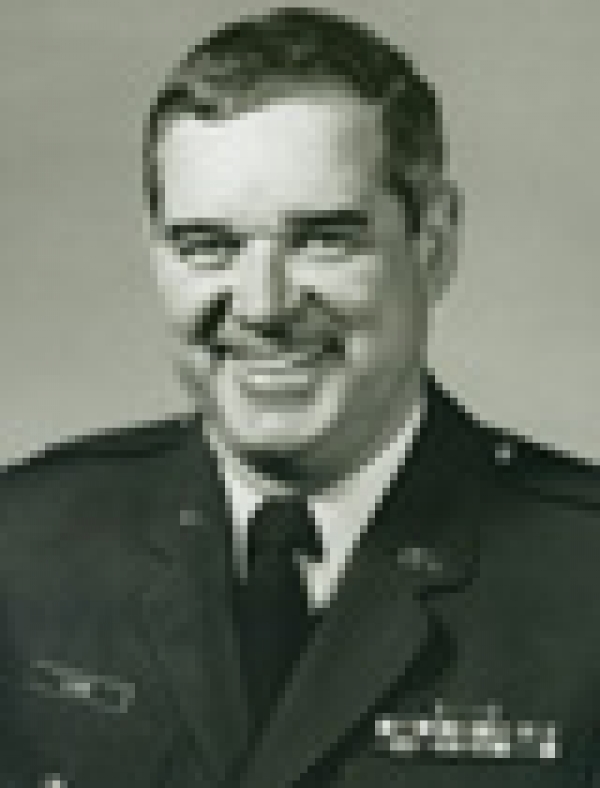He was an officer and a gentleman, a mover and a shaker, a regular guy who refused to wear his office or his rank on his sleeve.
John Clune is the most important man in the history of Air Force Academy athletics. He brought academy sports into the modern age. He created an atmosphere of competitive opportunity for thousands of cadets who badly needed the escape from the rigors of military and academic life.
But Clune—who was AFA athletic director from 1976 through 1991—was more than a straight-laced military administrator.
He was a pal of cadets. He was a champion of coaches. He was a man so universally respected in national athletic circles, that when he finally lost a bout with bone cancer in April of 1992, the President of the United States sent condolences to his widow and to the AFA athletic family.
Clune’s accomplishments during his 15 years at the academy are myriad.
He led the charge to bring Air Force into a major conference, a quest ultimately rewarded with membership in the Western Athletic Conference (WAC).
He hired Ken Hatfield, who began the turnaround of a moribund football program. When Hatfield left, he promoted Fisher DeBerry, a move that turned out to be a masterstroke. Under the men Clune hired, Air Force has gone to nine bowl games and won nine Commander-in-Chief’s Trophy titles.
But Clune was much more than a football man. An All-America basketball player at the Naval Academy and a lover of all sports, he was committed to giving Air Force cadets the widest range of interscholastic sports opportunities possible. Largely because of Clune, Air Force now boasts 27 varsity sports, among the highest total of any college in the nation. Among those 27 sports, 10 are for women, even though only a fraction of the cadet population is made up of women.
These are the tangible things Clune brought to the Academy. There were just as many intangibles.
“He established an atmosphere of family here,” said John Giannoni, a Clune aid for 13 years at the Academy. “He took care of his people. He went to the mat for his people. By doing that, he created a lot of loyalty and enthusiasm”.
Clune was a character, a guy always ready with a joke, a man whose booming voice and casual manner made those around him feel good, feel alive.
When Clune retired from the Academy in 1991, he was feted by all manner of sendoff celebrations attended by all manner of dignitaries.
Shortly later, his health began faltering. He fought cancer for more than a year before he died on April 4, 1992 at age 59.
He left this world with many legacies and many more friends.

Clune’s accomplishments during his 15 years at the academy are myriad.
